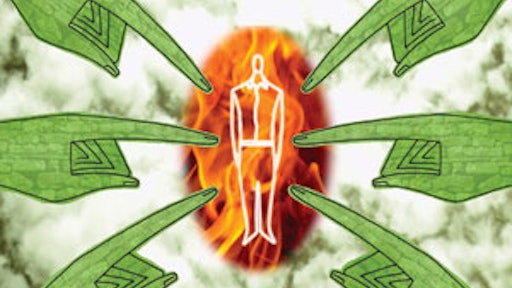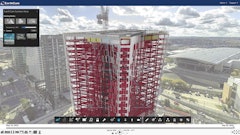
Everyone has a "hot" button that represents the area of life that tends to bring out the most emotions. Certainly for many of us some hot buttons may bring out hatred and anger, but other hot buttons can bring out great enthusiasm and passion. We will focus on positive hot buttons in this article.
Developed many years ago, Abraham Maslow's Hierarchy of Human Needs continues to be used as a model to what motivates people. Maslow determined that most people worked to satisfy needs and that these needs fell in a particular order, ranging from "basic" needs at the first level to "aspirations" at the sixth. Because basic needs must be met before all others, we'll explore that.
Wages competitive with the local market is the first "basic needs" hot button. This is a fine line for most business owners because we want to keep overhead low to increase profit margins. But pay wages that are too low and you risk high employee turnover, attracting more unskilled people, and driving morale lower.
If you don't know the range of wages you should be paying, consider calling a local employment agency or chamber of commerce to find out.
Assuming your wages are (or will be) at least competitive, another "basic needs" hot button might be assisting employees in minor ways: free gasoline or oil for their own vehicles, allow personal use of some company equipment or tools, pay for uniforms, or buy lunch once a week.
Now, before you think that I'm suggesting you give each employee his own credit card and keys to your bank vault, consider how important these types of benefits might be to some of your employees. For some, especially people with a long commute, receiving occasional assistance with gas or oil for an oil change might meet a basic need and might go a long way to keeping that employee content and loyal.
Obviously you must use wise discretion and communicate what you will do and what you will not do, but providing items like these keeps a few more dollars in the employee's pocket. Don't get me wrong, I realize the temptation for some employees to abuse this assistance. But it can still be a terrific way to meet a few more basic needs of your people.
Another hot button to push might be offering some personal assistance. Consider an employee who has had a drinking problem or has admitted to drug abuse. Perhaps this employee is interested in receiving professional assistance through a counseling program. You might help meet this most basic of needs by ensuring the employee that he will be allowed to attend counseling sessions - even during work hours.
Depending on the severity of the problem it might even be wise for you to persuade the employee to allow you to give his paycheck to his spouse or to make direct deposits into a checking account. Remember: If the employee is wasting wages on alcohol and drugs when they are trying to "kick the habit," other more personal needs might go unmet, causing additional problems including problems affecting work for you.
Thus far our hot buttons have pertained to the employee personally, but just as important is his family, and you can push buttons there too. For example, if an employee has school-age children you might give annual gift certificates for school supplies (which can "nickel and dime" parents) and in the process make your employee's spouse extremely loyal to you and your company.
But whatever you choose to do, remember that the first level of hot buttons, the basic needs, is one that all people have. So consider your employees. What "basic" needs do they have? Are they having difficulty in some area of their life that you might provide some assistance?
It is not my intent to suggest that construction owners and senior leaders should become pop psychologists or the "federal government" but rather that we become alert to the people working for us and their needs. If you are finding, like I am, that a growing number of front line employees are having some difficulty in their personal lives, you might begin to reconsider what contribution you might make to building a stronger employee.
Brad Humphrey is President of Pinnacle Development Group, Inc., a consulting and training firm specializing in the construction industry. Brad has been a regular speaker and trainer at the National Pavement Expo and National Pavement Expo West for more than 15 years. For more assistance with improving your motivational approach to workers, e-mail Brad at [email protected].


























